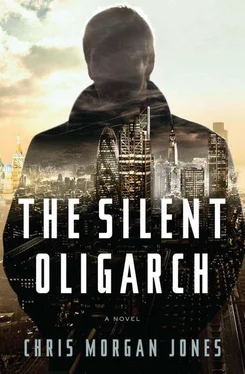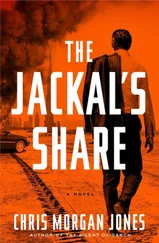Its lesson was not immediately clear. Looking down from Faringdon, you saw eighteen investments with no obvious commercial theme or logic to link them, lumped together rather than arranged. Looking up, you saw little at all. Between them, the nine shareholders were based in five tiny islands that had their own sovereignty and similarly stubborn ideas about the availability of information. For each, all Webster’s people had been able to find was an address and some directors (Lock again among them, the rest mere cutouts). There was no straightforward way of knowing who owned these companies, how much money passed through them, where it came from and where it went. Every project hit this wall, and Webster was used to it. There were ways of getting around it, but they were underhand and difficult, and the information they produced was seldom as useful as you wanted it to be. What was he expecting to find there, after all, except another layer of the same?
In Russia itself he was inclined to be cautious for a while. He and Hammer had discussed this at length. Hammer wanted him to let Lock, in particular, know that people were asking questions about him, but Webster wanted to wait until he knew his subject better. For now, then, all he had done was to ask Alan Knight, the oddest Englishman in the Urals, to do a little work for him.
So this was what was on the wall. First, he knew that few people knew anything about Malin. In Russia you had to look hard to find him at all, and in the West, nothing. His name was on a list of attendees at a Kremlin meeting in 2000 that had brought together managers of energy companies with academics and policy-makers. In 2002, he had attended talks in Budapest as part of an official Russian delegation that had included the then Minister of Industry and Energy; the following year he had been in Almaty as part of a similar group. He had been mentioned on a Ukrainian blog as one of a number of Kremlin insiders influencing the Russians’ decision to block gas supplies to Ukraine in 2006, and later that year he had been awarded The Order of Honor by the state, for “high achievements in economic production and for promoting the true value of Russia’s economic resources.” Real Five Year Plan stuff, Webster had thought, but the Russian press had barely shown any interest.
Webster had expected to find dirt on Malin, because there was dirt on everyone of note. If you were powerful you had enemies and your enemies wrote bad things about you—made them up if that was easier. This, in Russian, was kompromat, or compromising material. There was no kompromat on Malin—it was difficult to believe that someone quite so corrupt could appear quite so polished—and without it it was difficult to know where to start.
Nor was there much of interest on Lock. His name was on a thousand corporate documents and countless press articles but none was instructive. Whenever Faringdon bought something, or sold something, or formed a partnership, he was there as a spokesman for the company, providing a quote—always bland, always taken from the approved press release. Webster’s researcher had found two photographs in Profil, the gossip magazine of Moscow, that showed Lock at gaudy parties with improbably glossy young women. Webster was pleased to know what he looked like, at least: ash-blond, broad-faced, his thin lips, almost entirely disappeared, suggesting someone who had said “no” too often to the world. His skin was lightly pockmarked around the cheekbones but his eyes were blue and clear. Less worn, his face would have been handsome. In both pictures he was smiling and looking studiedly carefree, and in both was wearing well-cut suits that somehow contradicted his casual expression and seemed out of place amid the Moscow glitz.
This was all that Webster knew about Lock’s life now. He knew a little about his life before he went to Russia as well, but the two ends hardly matched. He was born in 1960 in Den Haag. His parents were Dutch, but had moved to London in the late 1960s when his father was transferred there by Royal Dutch Shell. In Britain Lock had had a good, regular, middle-class education—boarding school, history at Nottingham University, law conversion at Keele—and on leaving had joined a decent second division London law firm called Witney & Parks, which specialized in shipping and commodities work. He had a sister but Webster hadn’t found her yet. In his last year at school his parents had moved back to Holland but he had stayed on in England. In 2002 his mother had died in the same hospital where Lock had been born; his father now lived in the seaside town of Noordwijk.
Otherwise there was nothing: no profiles in the newspapers, no public spats with competitors, no scandals of any kind. No one had stopped to find this man interesting before—or no one had seen the use in doing so. Grachev was worse, a complete nonentity; and while the companies were busier, there was nothing that caused Webster’s instincts to spark. His researchers had given him histories of Faringdon and Langland but each was merely a list of transactions, on the surface irredeemably dry and impenetrable underneath. He imagined reporting so little to Tourna and realized just how much they had taken on.
There was no story here, and he knew the story was essential. What he was hoping to find was a route, the first few feet of a path: it might be a hint of a character, a glimpse of some hidden incident. He didn’t have it yet. Hammer was fond of saying that if what you needed wasn’t within reach on a piece of paper it would be in someone’s head. So perhaps he would simply have to talk to people sooner than he would have liked. The names circled on the wall knew Lock or Malin and had done business with them. Some would be loyal to them, and some would not, and he would have greatly preferred to leave them until he was sure of his plan and their allegiances. So be it. And in the meantime there was always Alan Knight.
THE ONLY SIGNS that Alan Knight was English were his name, his briefcase and his accent, a soft Derbyshire burr that when nervous lowered to a mumble. Otherwise, he was Russian; he had steadily become so over the last twenty years. Even now, in a barely autumnal London, he wore heavy rubber-soled black shoes and a thick quilted coat that ended well below his knees. Underneath that, Webster knew, would be a blazer, and his shirt would be short sleeved. His trousers were half an inch too short, mid-gray, and pressed to a military finish. He had metal-framed glasses with light brown lenses, and the only color in his face was in his ruddy nose and, just detectable, in his gray-blue eyes. He was fifty, or thereabouts, and walked with a stoop, bowed by the weight of what he knew.
Knight lived in Tyumen, in the eastern Urals, the capital of Russia’s oil industry, a thousand miles from Moscow on the edge of the rich, bleak flatlands of western Siberia. There were many Westerners in Tyumen, but they all lived in expatriate compounds, sent their children to the American school, and left as soon as they could. Knight was a local. He had met his future wife there in the last days of the Soviet Union and when it became possible had married her and stayed. He had three children, all of whom were in the local Russian school. He supported his family by writing about oil for the Western press, and by working for companies like Ikertu.
Webster had no idea whether this had made him wealthy or poor, but he was valuable, without doubt. Knight knew oil and gas better than anyone but the Russians themselves. How he was suffered to know so much was a question that had always intrigued Webster: either he was in the pay of someone, or he was merely too lowly to be noticed. But Webster had known him for fifteen years, since his own days in Russia, and had never detected any bias in his information. In any case it hardly mattered here: if Knight failed to tell him anything interesting no damage would be done, and if he knew that Ikertu was investigating Malin and told people, that would merely accelerate things.
Читать дальше












